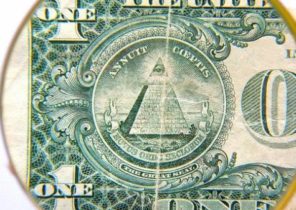
20 Jan echo the “age trump” has given worldwide. The day he officially became the owner of the White house and signed his first decrees.
January 23, sounded the funeral knell of the TRANS-Pacific partnership (TPP). Trump has signed a decree on the output of the “Agreement on the Transatlantic free trade area”, thus fulfilling a promise he gave during the election campaign, and interrupting free trade, which was conducted for about 80 years.
In relation to international trade trump has a firm position: he wants to ensure that the US industry took a favorable position in international competition.
Trump policy in the sphere of foreign trade includes the following: to oppose the TPP, to resume negotiations on the North American free trade agreement, to replace multilateral and interregional negotiations on a bilateral free trade; to adhere to a strict policy in relation to foreign competitors of American industry; ranked China to the country, “who took control of the exchange rate”, and to initiate against China as much as possible of litigation on trade.
Moreover, trump has put forward a protectionist policy of withdrawal from the WTO and imposing on Chinese and Mexican goods customs duty of 45% and 35%, respectively. Of course, it is unlikely to reach such extremes. Even trump was appointed the new Minister of trade United States Wilbur Ross said THAT “a reduction in the balance of payments deficit does not mean the collection is imported from China goods duty 45%,” but with great confidence we can say that in the “era of trump” will be much more protectionist measures.
Currently, most trade policies trump people interested in the fate of the TPP. Overall, in the future, there are three to the following scenario.
TTP temporarily hardens, but again, will continue to operate, waiting until people calm down.
Trump considers TTP as a “potential disaster” for America, bad for employment and economic growth in the US. For the most part these statements are made to attract a part of voters. Open confrontation trump can make TTP a dead end, but still leaves hope for his recovery. The reason for this is important benefits of the TPP for America that trump can not help but notice, being the President of this country.
First, TTP has for America, an important economic and strategic importance, as it may contribute to export expansion, economic growth, and can help America once again to get leadership in economic globalization.
Secondly, by cancelling the TTP, trump could to meet Republican resistance, though in the conditions of instability of his power, he should unite the members of the Republican party in the Senate. In the parliamentary elections the Republican party gained a majority in both chambers of Congress (51 in the Senate and 239 in the House of representatives). Traditionally, Republicans support free trade, and since Congress is controlled by them, dismissing the TTP, trump would have faced quite a lot of resistance party. Thirdly, States are under great pressure partners for the TTP. Total loss of TTP at an early stage would have caused a feeling of distrust toward America from the partners, as well as a sharp weakening of the political and economic influence of the United States in the Asia-Pacific region (APR). Currently, Japan and Malaysia officially endorsed an agreement on the TPP, Singapore and other countries are also not left out of the agreement and continue to hope that trump will change his mind. The US withdrawal from the TTP is a serious blow for the strategic trust of other countries, and in the future any initiative of America in the United States will be questioned, which is very disadvantageous to the United States. Trump is a very practical man, he would not ignore the real benefit in order to keep the promise. Therefore, there is a possibility that after the inauguration of the trump again change its position and will promote the TPP in Congress, especially in the context of the majority Republicans.
However, due to the fact that trump has repeatedly spoken out against the TTP, he will need some time to change his attitude.
TTP will be replaced by bilateral agreements on free trade
When trump announced the release of the TTP, he proposed an alternative, namely the conclusion of new bilateral free trade agreements (free trade agreement — FTA) with 11 partner countries. Thus, it is possible that the TPP will be replaced with 11 such agreements. The TTP only included 12 countries: the United States, Australia, Brunei, Canada, Chile, Japan, Malaysia, Mexico, New Zealand, Peru, Singapore and Vietnam. Among them, 6 countries the US has already signed FTAs with 6 countries, namely Canada, Mexico, Chile, Peru, Singapore and Australia. On the basis of existing agreements, the TPP, America will again hold talks on FTA separately with each party and form a network of bilateral FTA’s in the center of the United States. This scheme has several advantages. On the one hand, America can obtain qualitatively similar to TTP to arrive economic and strategic benefits. On the other hand, can be targeted to correct disadvantageous America the terms of the agreement. At the same time, by doing so, trump will not depart from the data in the pre-election campaign promises. It is also evident that in bilateral negotiations, America will have a more advantageous position.
On the basis of the already concluded bilateral FTA we can negotiate at a higher level. With the countries with which there were no negotiations still to come, as the huge American market has great attraction for the countries participating in the TPP. America will use the bilateral FTA to put more stringent conditions and to protect their own interests. Besides, on the existing basis of the negotiations will be easier and much faster.
TTP, in contrast to the traditional FTA does not focus on reduction and elimination of trade restrictions, and gives some precedence issues such as the unity of law, protection of the rights of workers and the environment, government procurement and state-owned enterprises. Trump believes that the TTP will help to ensure that the jobs of Americans leave to other countries, therefore opposed. However, in the future he can bring forward the best position in the TPP bilateral negotiations and to guarantee the invulnerability of Americans in the face of new competition laws. Moreover, a bilateral FTA is integrally combined with the system of bilateral U.S. alliances with Asia-Pacific countries and meet strategic and economic interests of the United States in the Asia Pacific region.
TTP will remain subject to the re-negotiation and the addition of some new items
If you look at the history of the US negotiating FTA, you can see that all agreements are equally approved by the Parliament. For example, after in 2007 it signed an FTA with South Korea was twice conducted additional negotiations in 2011 on 12 October an agreement was finally approved by Congress, and on November 22 the Parliament of the Republic of Korea. Thus since the conclusion of the initial agreement, four years have passed. Negotiations on the TPP lasted eight years, so complete cancellation is unlikely. It is possible that trump, while maintaining the existing framework of TTP, will re-negotiate on those points with which he disagrees — for example, in areas such as tobacco and pharmaceuticals. In addition, can be added paragraphs on the exchange rate. Thus, meeting the demands of the masses, it will create only the visible changes, without changing nothing of substance.
To conduct more effective trade policies trump has established a national Council on trade at the White house, the head of the Council was appointed economist Peter Navarro. The purpose of this new mechanism is to provide the President during the talks innovative strategy, together with other mechanisms to assess the production capacity and defence industrial base in the United States, and create new jobs.







